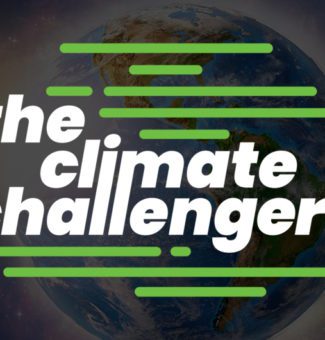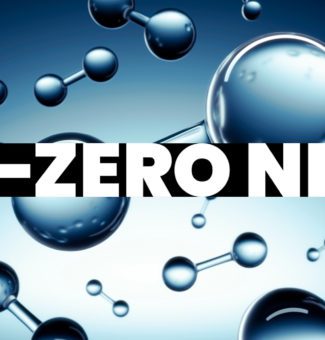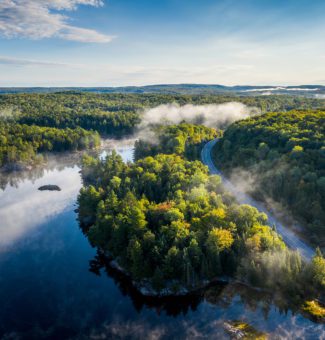Guest blog post: Bearing witness to the climate emergency in Antarctica
With OPG’s support, engineering student Quang Anh Nguyen took a life-changing trip this spring to Antarctica as part of the 2041 ClimateForce Antarctic Expedition. In this guest blog post, he recounts the climate change impacts he saw first-hand during his visit to Earth's southernmost continent and shares his hope of a renewed collective effort to tackle the climate emergency.
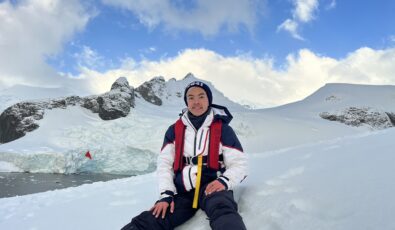
Cold. Vast. Intense. Antarctica can render you speechless, transporting you to seemingly another planet. An ancient plain, frozen in solitude.
I was fortunate enough to be part of the 2041 ClimateForce Antarctic Expedition this spring. Organized by Robert Swan, the first person to go to both Poles, the journey brought 170 sustainability leaders from 35 nations together to come witness first-hand the impact of climate change on Antarctica and create a community of Antarctic ambassadors who would return to amplify their experience to even more people.
As we navigate through large channels trailed on either side with glaciers running for miles high and far, I felt a clarity of thought. It was clear. It’s just you and the icebergs.
Getting to Antarctica
Despite the cold, inhospitable environment, Antarctica welcomes you with life so raw and vibrant. As we encroached on the peninsula, I spotted the first sight of polar wildlife – a humpback whale flapping its fluke majestically, unaware of the little humans observing it from above. Getting closer to shore, I started to catch sight of penguins frolicking on land, slipping and sliding down the snow.
"If there is one thing Antarctica has taught me, it is that humans can achieve amazing feats, but also create devastating impacts, if we put our mind to it."Quang Anh Nguyen
Yet for the beauty of it all, there was an equal amount of bittersweetness as you see the real impact of climate change on the region.
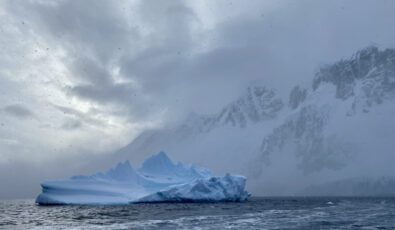
On one of the days, we passed by what’s called the “Iceberg Graveyard”, where icebergs of all shapes and origin come to rest. A romantic and poignant image, and a stark reminder of the urgency of climate change.
Even more surprising, while we were there, it rained. Robert pointed out that in his 40 years of going to Antarctica, this was the first time he ever saw rain in the region.
The Issue is Here, and It is Now
The truth is we don’t have until 2050 for every country and company to get onboard with net zero. While institutions make big pledges to reach net zero, i.e. reduce their greenhouse gas (GHG) emissions to zero (often by the half-century), the path to get there is currently murky, questionable and in many cases not fast enough.
If we continue at the current rate of emission, we have eight years left until the global temperature rises by 1.5 oC. This is critical as 1.5 oC is what most countries agreed to limit global warming by with the Paris Agreement. At this point, there will be “unprecedented heatwaves, terrifying storms, widespread water shortages and the extinction of a million species of plants and animals,” according to the UN Secretary General.
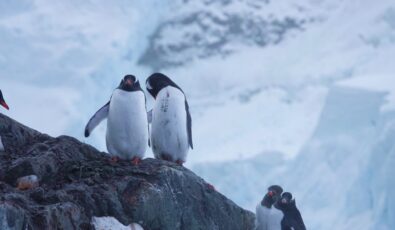
The truth is every day we spend debating on the existence, economics, and politics of climate change is another day of inaction. Meanwhile, sea ice continues to melt, causing water levels to rise, coastal erosion, and flooding of countless marginal communities.
In fact, while we were there, an ice sheet the size of Rome collapsed in eastern Antarctica.
An Intergenerational Challenge
So if the problem is so evident, why is there still struggle for change? For many Gen Zs and millennials, it can feel frustrating at times to see that our power to educate, bring awareness, and vote with our wallet is not enough.
And that is perfectly valid. Currently, the large part of decision-making still lies in the hands of the older generations. Yet, many of them shroud their minds in divisive politics, complex economic theories, and niche scientific findings to rest in the comfort of complacency.
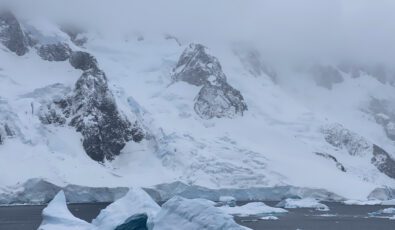
They say that they have hope in the future generation to fix things, without realizing that they are key to the solution themselves.
So I hope this acts as a wake-up call. Because we need everyone working on many solutions, from all corners of society.
Solutions are Already Here, Un-Politically Speaking
A major bottleneck to the green transition is energy resiliency. With the rising contribution of solar and wind energy to the grid, we face the problem of intermittency, as these renewable energy sources cannot supply power 24/7 due to weather dependency.
This poses risks of more frequent outages and challenges with balancing grid demand and supply. Therefore, we need a source of clean, reliable baseload power. Currently, that comes in the form of nuclear and hydropower.
For when the sun doesn’t shine and the wind doesn’t blow, we cannot be turning to fossil fuel for backup. Yes, nuclear has admittedly faced many backlashes historically.
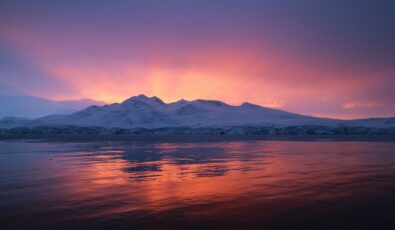
However, from a climate perspective, nuclear is one of the lowest GHG-emitting sources of energy, comparable to wind and solar at four to 110 g of CO2 emitted per kWh of power generated (IPCC). Strict regulations in both plant operations and radioactive waste management also ensure nuclear power remains an extremely safe form of clean generation.
Canada, for example, has long been implementing its Radioactive Waste Policy Framework since 1996 and are currently modernizing their policy based on extensive community engagement.
At the end of the day, any progress in reducing our reliance on fossil fuel is a win in my book.
Because We Can Do This
If there is one thing Antarctica has taught me, it is that humans can achieve amazing feats, but also create devastating impacts, if we put our mind to it. So let’s put our collective efforts toward what is needed for our society and planet. Because the climate waits for no one.
Subscribe and stay informed
Sign up to receive the latest news, project updates, and event information from OPG.
